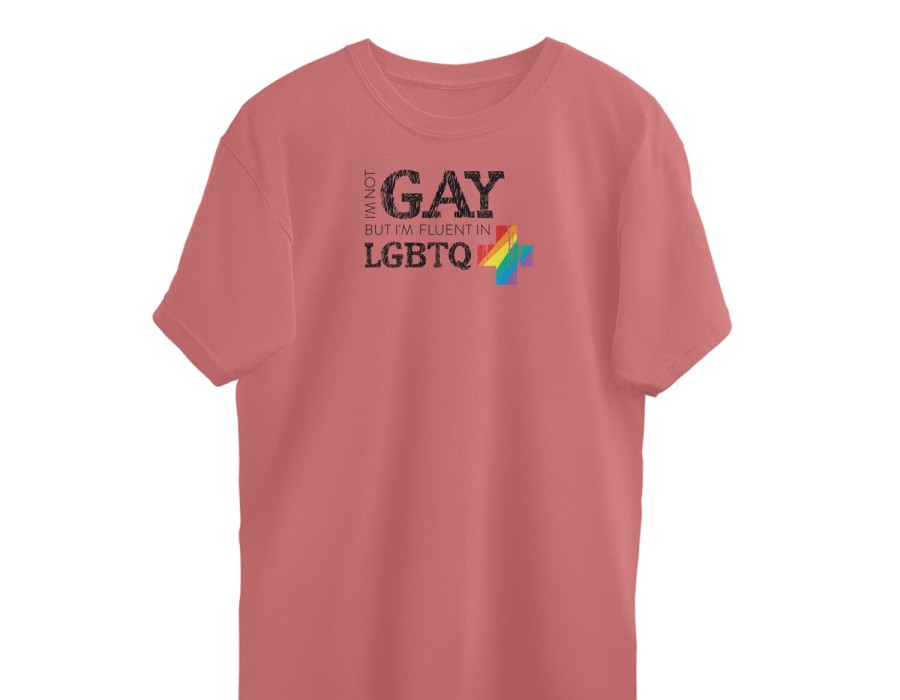The LGBTQ+ movement has a rich history of advocacy, resilience, and transformation. One of the most visible symbols of this movement has been the LGBTQ+ T-shirt. These garments, once niche expressions of identity and defiance, have now permeated mainstream fashion, reflecting broader societal acceptance and the ongoing fight for equality. This article explores the journey of LGBTQ+ T-shirts from their activist roots to their current status as mainstream fashion staples.
The Early Days of LGBTQ+ Activism
Origins in the 1960s and 1970s
The emergence of LGBTQ+ T-shirts can be traced back to the 1960s and 1970s, a period marked by significant social upheaval and the birth of the modern LGBTQ+ rights movement. During this era, T-shirts began to serve as a canvas for political statements and personal identity. Activists used them to express solidarity and raise awareness about LGBTQ+ issues. The iconic “Gay is Good” slogan, popularized by activist Frank Kameny, is one of the earliest examples of such T-shirts.
The Impact of the Stonewall Riots
The Stonewall Riots of 1969 were a pivotal moment in LGBTQ+ history, sparking widespread activism and the proliferation of LGBTQ+ symbols, including T-shirts. These garments became a powerful medium for expressing pride and resistance. Messages like “We’re Here, We’re Queer” and “Silence = Death” captured the spirit of defiance and unity that characterized the movement.
The 1980s and 1990s: A Period of Growth
AIDS Activism and Visual Representation
The 1980s and 1990s were marked by the devastating impact of the AIDS epidemic on the LGBTQ+ community. During this period, T-shirts played a crucial role in raising awareness and funds for AIDS research. Designs such as the pink triangle, repurposed from a symbol of persecution to one of empowerment, became widely recognized. T-shirts with slogans like “Act Up, Fight Back, Fight AIDS” were ubiquitous at protests and rallies.
Mainstream Media and Visibility
As the LGBTQ+ rights movement gained momentum, so did the visibility of LGBTQ+ T-shirts. Celebrities and public figures began to wear these garments, furthering their reach and impact. The rainbow flag, designed by Gilbert Baker in 1978, became a universal symbol of LGBTQ+ pride and started to appear on T-shirts, enhancing their appeal and visibility.
The 2000s: From Niche to Mainstream
Corporate Endorsements and Pride Merchandise
The turn of the millennium saw a significant shift as corporations began to recognize the LGBTQ+ community as a valuable market. Brands started to produce and sell Pride-themed merchandise, including T-shirts. This commercialization, while sometimes controversial, helped to normalize LGBTQ+ identities in the public eye.
Companies like Nike, Adidas, and Levi’s released Pride collections, featuring T-shirts emblazoned with inclusive messages and symbols.
Fashion Industry Embraces Diversity
The fashion industry also began to embrace LGBTQ+ themes more openly. Designers and brands showcased LGBTQ+-inspired collections during major fashion weeks, further integrating these symbols into mainstream fashion.
T-shirts with messages of love, acceptance, and equality became popular, reflecting a broader cultural shift towards inclusivity.
The 2010s and Beyond: A Celebration of Identity
Intersectionality and Diverse Representations
In recent years, there has been a growing emphasis on intersectionality within the LGBTQ+ movement.
This has led to more diverse representations on T-shirts, including messages and symbols that highlight the experiences of transgender, non-binary, and BIPOC (Black, Indigenous, and People of Color) LGBTQ+ individuals. T-shirts celebrating Black Pride, Trans Pride, and other intersecting identities have become increasingly common.
Social Media and Global Reach
The rise of social media has further amplified the impact of LGBTQ+ T-shirts. Platforms like Instagram, TikTok, and Twitter have allowed individuals to share their stories and showcase their Pride-themed apparel to a global audience. This has fostered a sense of community and solidarity, as well as provided visibility to LGBTQ+ designers and brands.
Sustainability and Ethical Fashion
The modern fashion landscape is also seeing a shift towards sustainability and ethical production. Many LGBTQ+ brands are prioritizing environmentally friendly materials and ethical labor practices in the production of their T-shirts. This aligns with broader trends in the fashion industry and reflects a commitment to social justice that extends beyond LGBTQ+ rights.
The Future of LGBTQ+ T-Shirts
Continued Advocacy and Innovation
As we look to the future, LGBTQ+ T-shirts will undoubtedly continue to evolve. They will remain a powerful tool for advocacy, helping to raise awareness about ongoing issues such as trans rights, LGBTQ+ youth homelessness, and global LGBTQ+ rights. Innovations in design and technology will likely lead to new ways of expressing identity and solidarity through fashion.
Integration into Everyday Fashion
LGBTQ+ T-shirts are no longer confined to Pride events or activist gatherings. They have become an integral part of everyday fashion, worn by people of all identities as a statement of support and allyship. This normalization is a testament to the progress that has been made, even as the fight for full equality continues.
Conclusion
The evolution of LGBTQ+ T-shirts from activism to mainstream fashion is a reflection of the broader journey towards acceptance and equality. These garments have served as powerful symbols of identity, resistance, and pride, and their continued presence in fashion underscores the ongoing importance of visibility and representation.
As we move forward, LGBTQ+ T-shirts will remain a vibrant and vital part of the cultural landscape, celebrating diversity and championing the cause of equality for all.





Comments